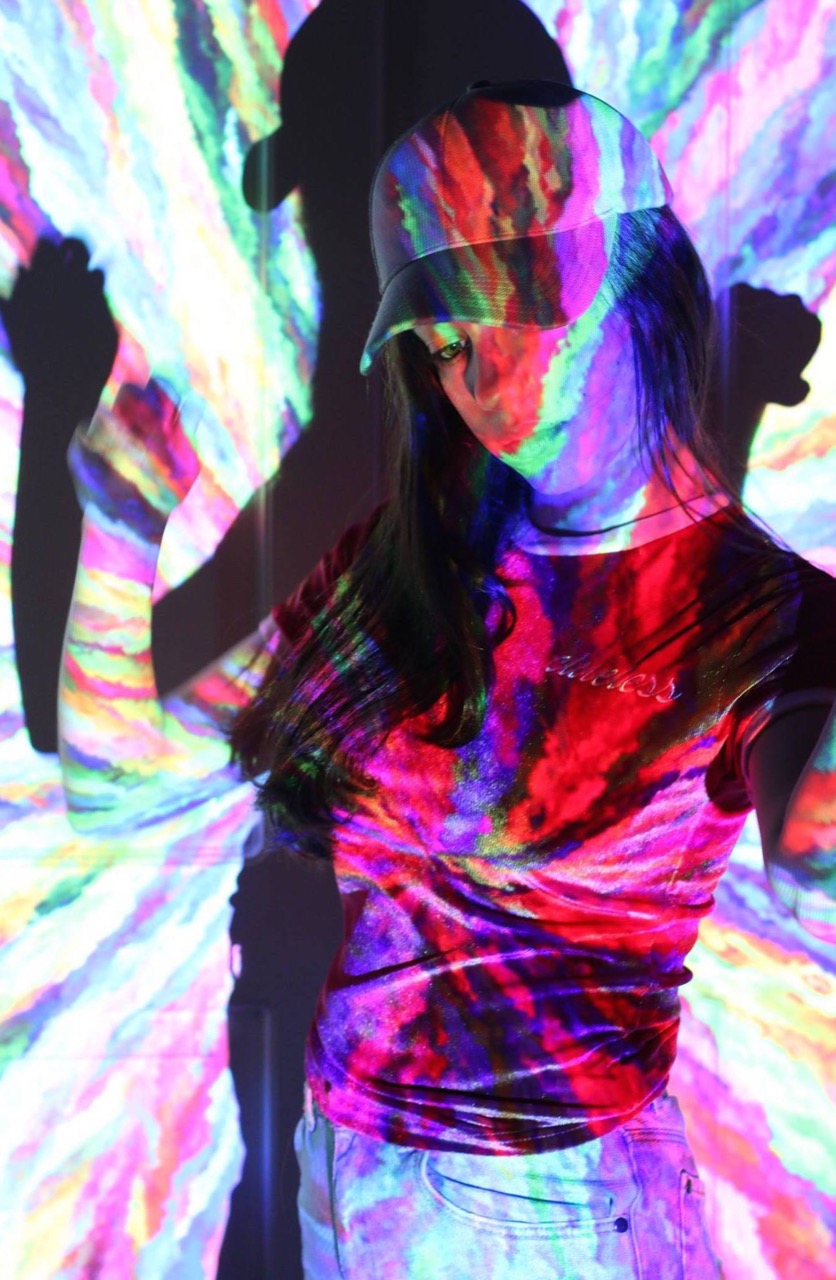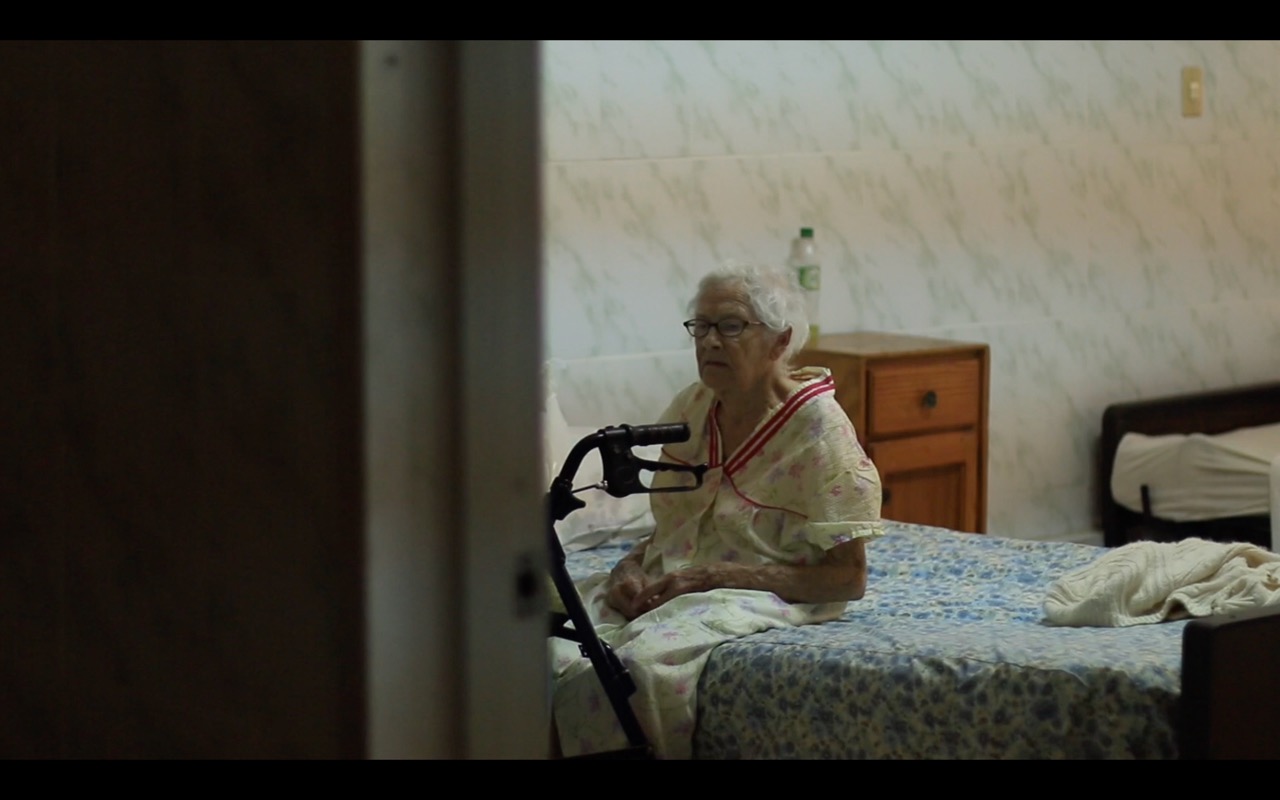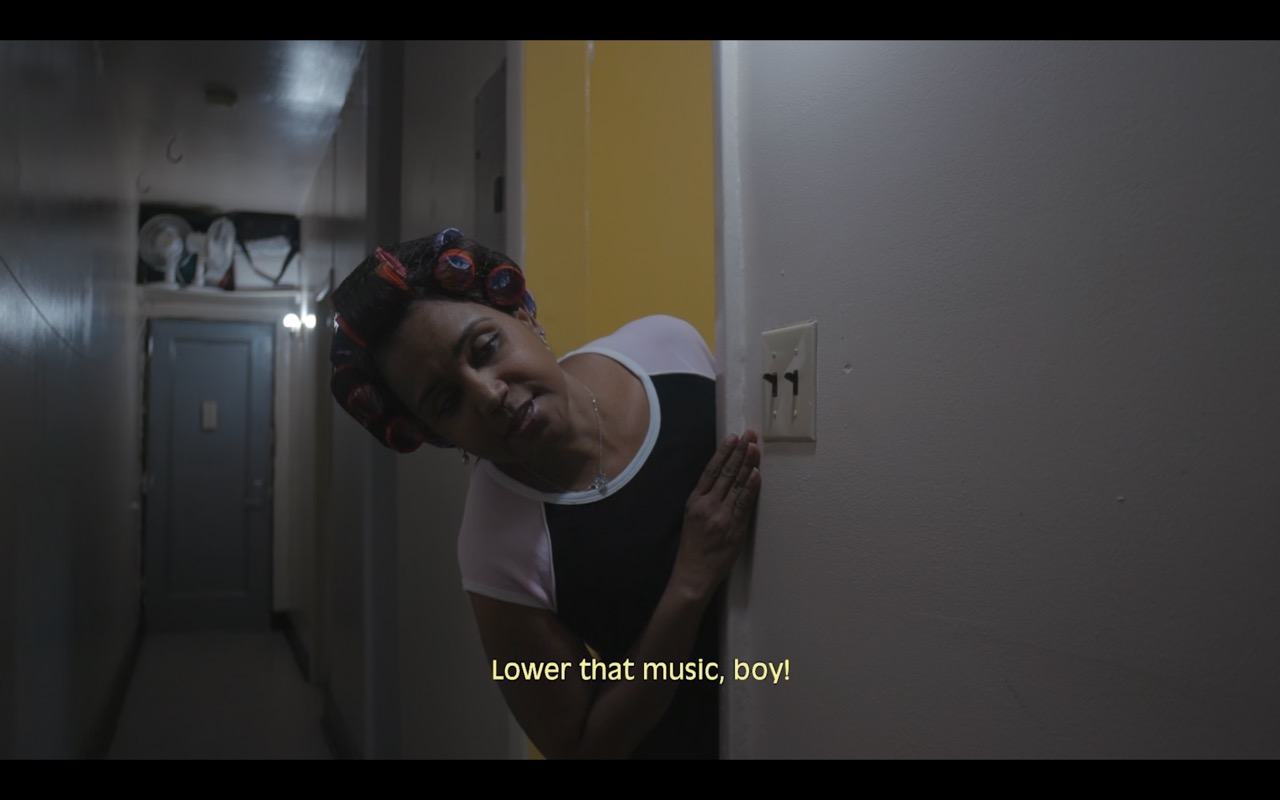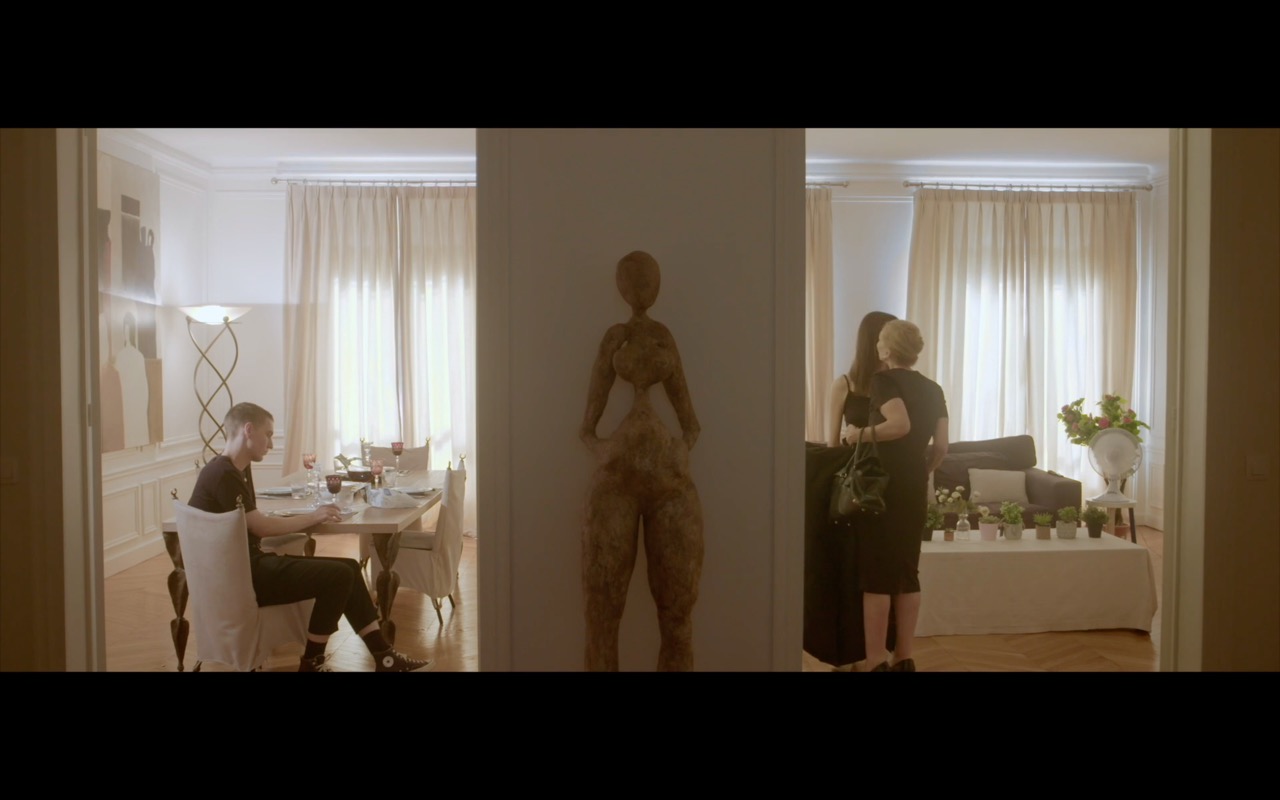In Conversation with Olivia de Camps
In Conversation with Olivia de Camps
We spoke to the young director, writer, cinematographer and producer
(among many other things) about her creative process, her inspirations, and her evolution as an artist.

Olivia de Camps
When I first stumbled upon the work of Olivia de Camps, I was shocked to learn how young she was. Her short film, La Soledad del Tiempo was so nuanced and so powerful, that I assumed whoever conceived it must have had years of experience. However, I soon found out that the mastermind behind the short film was a high-school student. It was then when I realized that this young cinematographer was going to do big things. As the years have gone by, Olivia has undoubtedly proved me right by consistently releasing a slew of impressive and introspective short films. Since moving to New York and enrolling in NYU, her work has constantly evolved while still retaining the essence that makes it so recognizable.
Olivia is a 20-year-old filmmaker from the Dominican Republic and New York. She is currently coursing her senior year at New York University Tisch School of The Arts majoring in Film & TV and minoring in Art History. Olivia is a woman of many talents, as apart from writing, directing, producing, editing and shooting her own films, she has also crewed on multiple student sets in the roles of cinematographer, production designer, associate producer and assistant director. Her films meld documentary and fiction and manage to highlight the discrepancies amongst the Latin American community.
Olivia’s work manages to encapsulate the Latino culture that surrounded her while she was growing up without being limited to portraying it exclusively. With projects like Night Shift and Nowhere, she shows us that she continues to grow as a creative and is willing to explore new narratives, points of view, and overall aesthetics in her work. Through her work, Olivia proves that age is truly just a number when it comes to talent and creativity. Here at The Pyramid, we’re very excited to see what the future holds for this promising talent, but we’re sure that we can expect big things from her.
We’re extremely happy that we got a chance to pick the up-and-coming cinematographer, writer and director’s brain and ask her about her work, her inspirations, and her life as a creative in NYC:
First off, tell us a little bit about yourself. Where did your interest in cinematography stem from? Is this something you’d always been interested in or is it an interest that surfaced at a later age?
I think I always knew I wanted to study something that had to do with film and for a long time I was sure I wanted to be a film editor. When I was around 10, I started editing videos using clips from movies & TV shows and would try to make a story out of them. Then I started making some experimental videos and documentaries on people I would meet. A bit later, I started volunteering at a retirement home in the DR, where I was particularly infatuated with one of the residents there - and I decided to bring my small DSLR camera and shoot a short documentary on her. I think that after that I’ve always felt this ineffable drive to shoot; it became sort of a necessity for me in a strange way.
“I think I never felt that I succeeded in communicating, when suddenly; my film was evoking
discomfort, amusement, intrigue, and arguments to an audience. I realized I had finally
found a language”
I think I never felt that I succeeded in communicating, when suddenly; my film was evoking
discomfort, amusement, intrigue, and arguments to an audience. I realized I had finally
found a language, a means through which I could express my own identity and separateness
and that through my lens, I could share untold stories and help educate viewers on subjects
often ignored or trivialized. I could learn to use the medium to influence a group of people:
make them pause, reflect, or see something they haven’t seen before, and encourage them to
think in a different way. I never really questioned it, but, I did wonder if it was stupid to not
study other things as well, because what would my films even be about, if I solely studied the
craft of filmmaking? I ended up moving to NYC three years ago to go to New York
University Tisch School of The Arts where I major in Film & TV and minor in Art History.The first time I stumbled upon your work was when you released La Soledad Del Tiempo (The Solitude of Time). I was really impressed with how someone so young could explore such a touching story without having their vision clouded by their own youth. Do you ever feel that being a young person in the 2010s-2020s has somehow influenced or affected the way you approach your work?
Thank you so much! That’s an interesting question. If anything, I constantly visited retirement homes because I enjoy listening to much older people. I think I’ve always been interested in melding the contemporary with the traditional in my shorts. Since I was a kid, I was always pulled into listening and observing people - whether it was my friends, strangers, elders, kids, family members, teachers, characters in books and in movies, really, everyone. I was also raised in a household where I was the youngest, my siblings are much older. I think that in a way, living in such a conservative country made me want to go against conventions, “break the rules,” even more, hahah.
“I think I’ve always been
interested in melding the contemporary with the traditional in my shorts“
“I think
that in a way, living in such a conservative country made me want to go against conventions,
“break the rules,” even more”
Being a creative in New York can be really hard, especially for someone who is trying to start their professional career. How do you feel that studying and living in New York has affected the way you understand cinematography, both as a craft and as an industry?
Uf you know how it is, with the vast amount of content bombarding us, the noise of our phones, the bustling streets – it’s definitely a challenge to focus and find a way to pause your brain. Moving to such a fast-paced city, where it’s almost impossible to sit down for more than an hour to just think, it’s been somewhat difficult to find that time and headspace. I usually have an image in my head and then write a story that would follow that image. Sometimes a scene or a specific song pops in my head and then I find a story that may follow it, other times I have to sit down, go for a walk, listen to music - basically do anything in an attempt to clear my brain enough to have space to think.
But I really can’t complain. New York is a city swarming with people from all over the world and the city itself has also been a school for me. The professors and friends I’ve met here that share a passion for filmmaking have taught me so much. As well as incredible, mind- blowing films that I’ve thankfully been exposed to. I feel like at some point I learned how to see. And after you learn how to see, it really affects every aspect of your life.
“I feel like at some point I learned how to
see. And after you learn how to see, it really affects every aspect of your life.”
While I was looking through your work, I was struck by the sharp contrast between a project like La Soledad Del Tiempo and a later project like The Big Sneeze. It is really impressive to see that you have such a wide creative range, and that no matter what you do, the end result is always fantastic. However, do you think that the difference in tone and subject matter of both these projects is something that was affected by your move to New York? Or did you always know that your creative range wasn’t necessarily limited by what your setting exposed you to?
Thank you so much! “The Big Sneeze” was the first “film” I did at NYU as a freshman. It was a quick assignment and we didn’t have much time to plan it out. I think that coming from a Catholic school in the DR where we never really studied art, to film school, really forced me to experiment. When I shot The Big Sneeze, I was taking many Art History classes and I was overwhelmed in the best way. I guess I’m still exploring, figuring out what I really want to say, and how I want to say it. But now I think I’ve gotten a much clearer sense of the type of films I strive to make.
“I used to be much more
interested in conveying a certain mood and feeling rather than a plot-driven film. But now
that has really changed.”
However, even though the content changes a lot - most of them have the same rhythm in
the editing and the same kind of narrative/experimental feeling. I used to be much more
interested in conveying a certain mood and feeling rather than a plot-driven film. But now
that has really changed. While it’s definitely a challenge, the goal is to make both experiential
and story- driven films. For me it’s always been extremely difficult to convert visuals in my
head into words.I imagine that studying in New York has exposed you to various other young artists also trying to start their own careers, so I wanted to explore the concept of collaborating. How would you say that seeing the way other artists approach their work has influenced the way you approach your own? Has the idea of collaborating (be it in casting other artists or merely bouncing your ideas off them) changed your perspective on what is and isn’t possible for a cinematographic project?
I love being on set so much. It’s really my favorite, it makes me all goosebumpy. Everyone has the exact same goal: to help make the greatest film we possibly can. It’s teamwork. At the same time, it’s labor. So many unprecedented things occur, it’s so time consuming, and such a bonding experience. Many of the people I’ve met on set have become my closest friends. It’s always been difficult for me to share my writing because it’s really hard for me to write and I’m very insecure about it. It’s almost torture for me to talk about it. Recently, I’ve gotten better at it, and have started sending my scripts to my friends. I’ve noticed it really is one of the best parts of all this, the ability to bounce off ideas with other people and have them enter your world and make it better. We’re so much in our heads and sharing it with people makes us realize what really isn’t working and what is.
“It’s teamwork. At
the same time, it’s labor.”
In Night Shift, I noticed that a Latino influence is deeply present, even though the setting of the short film is in New York. Do you consider that your own Latino roots have affected your work, or the way you approach a concept? In other words, do you feel that being a person of Latino origin living in New York gives you a perspective that you can use when developing new projects or ideas?
Hahah I think evidently there is nothing that inspires me more than the Dominican Republic. It’s my home and the streets have always been a magnet for me, where I simply pull out my camera to communicate the visual tableau of textures, colors, and personalities. It is a country full of contrasts––shantytowns alongside some of the most high-end beach resorts in the world. The streets swarm with yun yun carts, güira players, guarapo vendors, people of all ages swinging their hips to blasting merengue music, and domino players in colmados tipping back an afternoon drink.
“I am extremely fascinated by the Dominicans’ yearning for the American dream and how
Dominican immigrants in the United States form their identity between two countries and
two cultures”
I am extremely fascinated by the Dominicans’ yearning for the American dream and how
Dominican immigrants in the United States form their identity between two countries and
two cultures. I spend a loooot of time in Washington Heights with my Latin community
when I’m homesick or in a creative block - - it really helps a lot, and makes me want to
portray us in the realest possible way. The DR is rarely depicted authentically and in an
interesting way in film & TV, and the media as a whole, and it really gives me the urge to
change that.Whenever I see your latest work, I always feel that it gives me a very A24 vibe, which is somewhat hard to explain. To me it seems that your work somehow gives off a very “raw” vibe, while paying an extreme attention to detail at the same time, which in my opinion is a very hard balance to achieve. Are there any studios, directors or cinematographers that have influenced your work and your approach to directing?
Hahahah thank you! I love many A24 movies– thank you! I am very interested in blurring the line between documentary and fiction, a camera that is an observer rather than another character itself. I would say that some of my biggest influences are Andrea Arnold (her films such as Wasp, Fish Tank, American Honey), Edward Yang (Yi Yi might be my favorite film of all time), Jim Jarmusch(Mystery Train, Paterson, Only Lovers Left Alive). Alfonso Cuarón’s Roma that freshly exposes the rarely seen rawness and heart of Mexico, not solely the dangerous Mexico that is constantly portrayed in the media. All of Lucrecia Martel’s films characterized by minimalist and laconic qualities, challenging stereotypes and representing aboriginal and marginal communities, an important step for cinema in Latin America. My favorite cinematographer I think might be Robbie Ryan. I could talk about people I admire for forever.... hahaha.
“I am very interested in blurring
the line between documentary and fiction, a camera that is an observer rather than another
character itself.“
Finally, is there any
artist, from any medium, that you feel everyone should know? If so, who would
that be and why? Yes!!! Many artists. Patti Smith is one. Her music, writing, even her social media. She’s one of the only artists that is constantly remembering those who have passed away. Edward Yang as well. His films such as A Brighter Summer Day and Yi Yi... If you revisit Yi Yi as you become older, you connect to a different character, and it always feels like you’re watching the film for the first time. It’s a completely different experience. I think film might be one of the most important mediums to communicate necessary messages, connect bridges around the world, bring cultures together, allow people to leave their monotonous life for a certain amount of time, and transport them to another world. It also serves as a form of therapy, a companion for people and a form of escapism. And Edward Yang was a master of that.
We’d like to
give a special thanks to Olivia for taking the time to talk to us about her work. For more on Olivia and her projects, be sure to check out her Instagram at @oliviadecamps and visit her Vimeo to see all her work.






